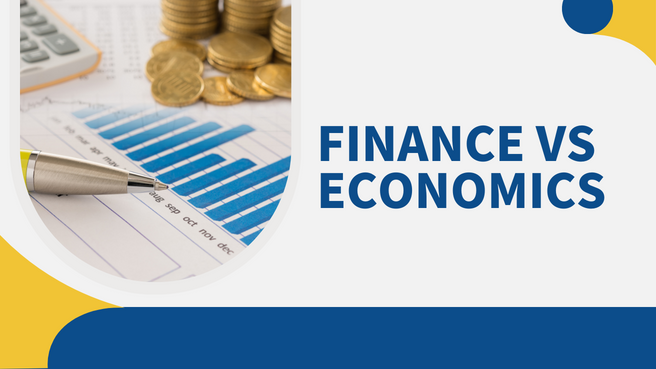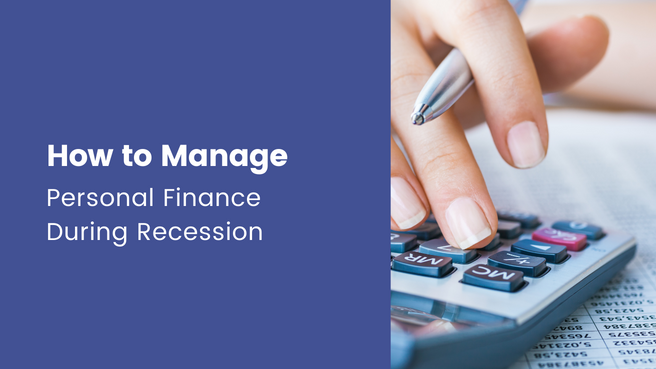Finance vs. Economics : Understanding the Difference and Its Impact on Financial Services

In today’s rapidly evolving world, understanding the intricate dynamics of finance and economics is more crucial than ever. These fields, often used interchangeably, stand at the core of our global economy, influencing every aspect of our daily lives. However, distinguishing between finance and economics is essential for anyone looking to navigate the complex world of financial services. This article aims to shed light on the differences and connections between these two critical areas, providing valuable insights and real-life data to enhance your understanding.
The Essence of Economics
Economics is a broad discipline that studies how societies use scarce resources to produce valuable commodities and distribute them among different people. It delves into the behaviors, patterns, and dynamics of economies on both macro and micro levels. Macro-level economics looks at total output, income, and the interrelations among various sectors of the economy, such as government, household, and business. Micro-level economics, on the other hand, focuses on individual decision-making processes and the allocation of resources.
The Realm of Finance
Finance, in contrast, is more narrowly focused. It deals with how individuals, businesses, and governments allocate resources over time, taking into account the risks and potential returns. Finance encompasses the management of funds, including saving, lending, and investing, with the ultimate goal of wealth maximization. It covers various domains such as personal finance, corporate finance, and public finance, each addressing specific financial activities and decisions.
Interplay and Distinctions
While both finance and economics concern the management of resources, their perspectives and methodologies differ. Economics provides a broad framework for understanding how money, markets, and economies operate, offering insights into trends, patterns, and the overall health of economic systems. Finance, however, applies economic theories to practical decision-making, focusing on the optimization of resources to achieve financial goals.
One of the key distinctions lies in their approach to analysis. Economics tends to employ more theoretical and abstract models to explain economic phenomena, while finance is more quantitative, utilizing mathematical and statistical methods to analyze and predict financial outcomes.
Real-Life Applications and Data
The interconnection between finance and economics is evident in the realm of financial services, a sector that plays a pivotal role in the global economy. Financial services encompass a wide range of activities, including banking, insurance, investment, and real estate services, facilitating the flow of capital and supporting economic growth.
Recent data highlight the significance of financial services in the global market. According to the World Bank, the global financial sector represented approximately 7% of the world’s total GDP in 2019. This sector not only contributes directly to economic output but also enables other industries by providing the capital necessary for expansion and innovation.
Moreover, the performance of financial markets is closely tied to economic indicators. For instance, stock market trends often reflect investor expectations about future economic growth, inflation rates, and interest rates. Understanding the economic context is crucial for making informed financial decisions, whether you’re an individual investor, a corporation, or a government entity.
The Evolution of Financial Services: A Reflection of Economic Theories
The relationship between finance and economics is not static; it evolves as new economic theories emerge and financial markets adapt. Over the past few decades, the financial services industry has seen significant transformations, many of which are reflections of broader economic trends and innovations. For example, the rise of digital banking and fintech is a direct response to technological advancements and changing consumer behaviors, concepts deeply rooted in economic theories about market evolution and technological impact on societies.
Impact on Policy and Regulation
Understanding the distinction and connection between finance and economics is crucial for policymakers and regulators. Economic theories inform fiscal and monetary policies, which aim to manage economic growth, control inflation, and stabilize currency. These policies, in turn, have a profound impact on financial markets and institutions, influencing interest rates, lending standards, and investment practices.
For instance, during economic downturns, central banks may lower interest rates to encourage borrowing and investment, stimulating economic activity. This decision, grounded in macroeconomic theory, directly affects financial institutions and markets, highlighting the symbiotic relationship between economics and finance in policy implementation.
Financial Services: A Catalyst for Economic Development
Financial services play a crucial role in economic development by facilitating the allocation of resources, mobilizing savings, and providing a platform for investments. Access to financial services enables businesses to expand, creates job opportunities, and promotes economic inclusivity by allowing individuals to manage risks and invest in their futures.
Real-life statistics underscore the importance of financial inclusion as a driver of economic growth. According to the International Monetary Fund (IMF), countries with deeper financial penetration tend to have less income inequality and faster economic growth. By bridging the gap between finance and economics, financial services can act as a powerful tool for economic development and prosperity.
Navigating Financial Markets with Economic Insights
For investors and financial professionals, combining economic insights with financial acumen can lead to better decision-making. Economic indicators such as GDP growth, unemployment rates, and inflation are critical for assessing market conditions and potential investment opportunities. By understanding these economic fundamentals, financial experts can better predict market trends, manage risks, and achieve superior returns.
The recent global financial crisis and subsequent recovery have underscored the importance of economic awareness in finance. Those who closely monitored economic indicators and government policies were better positioned to navigate the volatility of financial markets and protect their investments.
The Future of Finance and Economics
As we look to the future, the intersection of finance and economics will continue to evolve, shaped by emerging trends such as globalization, digitization, and sustainability. These forces not only challenge existing financial models and theories but also create opportunities for innovation and growth.
In an increasingly interconnected world, the demand for financial services that support economic sustainability and social responsibility is growing. Economic theories focusing on sustainable development and social welfare are influencing financial products and services, from green bonds to impact investing.
Embracing the Synergy
Embracing the synergy between finance and economics is essential for anyone looking to thrive in the financial services industry or manage their finances effectively. By understanding the economic theories that underpin financial principles and staying informed about economic conditions and policies, individuals and institutions can make informed decisions, navigate risks, and capitalize on opportunities.
The dynamic interplay between finance and economics offers endless possibilities for learning and growth. Whether you are a student, a professional, or simply someone interested in financial markets, diving deeper into these fields can provide valuable insights and open doors to new opportunities. In an ever-changing world, the fusion of finance and economics will continue to drive progress, innovation, and economic well-being.




